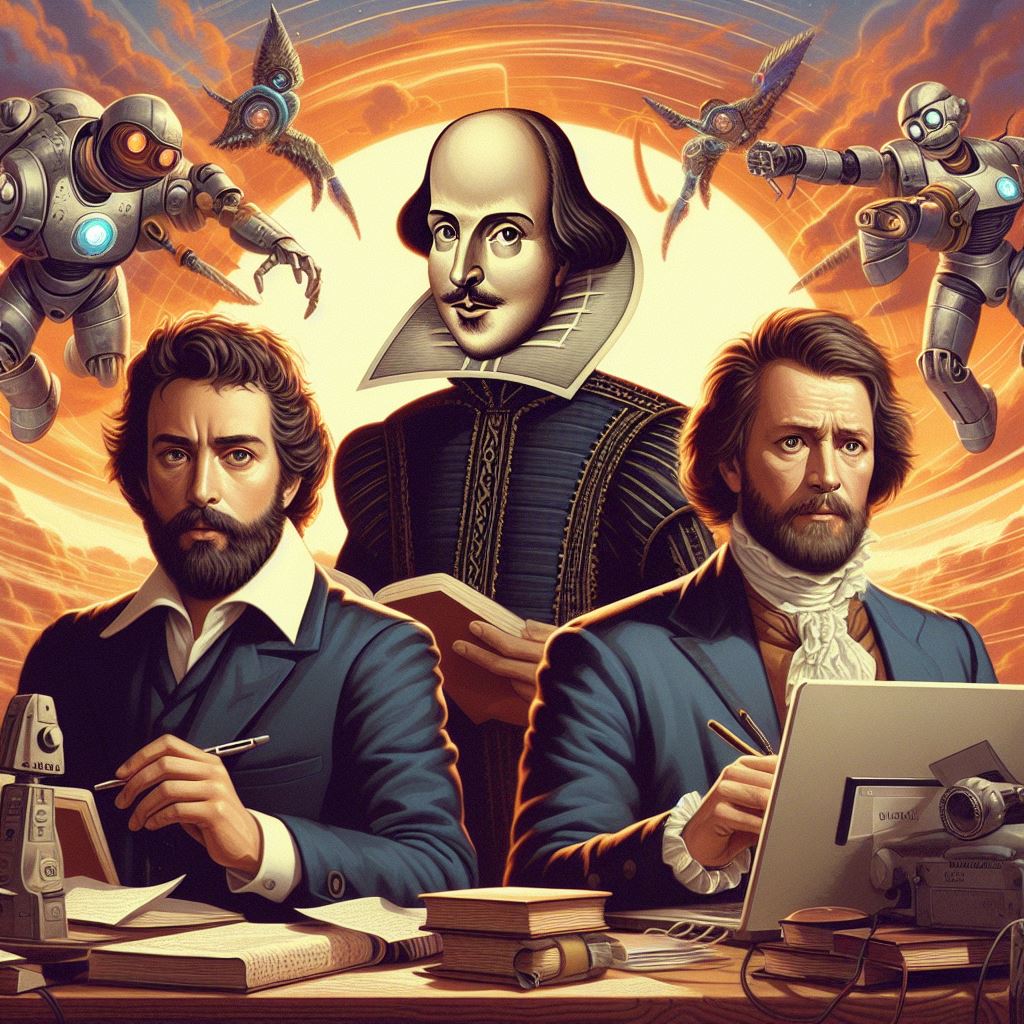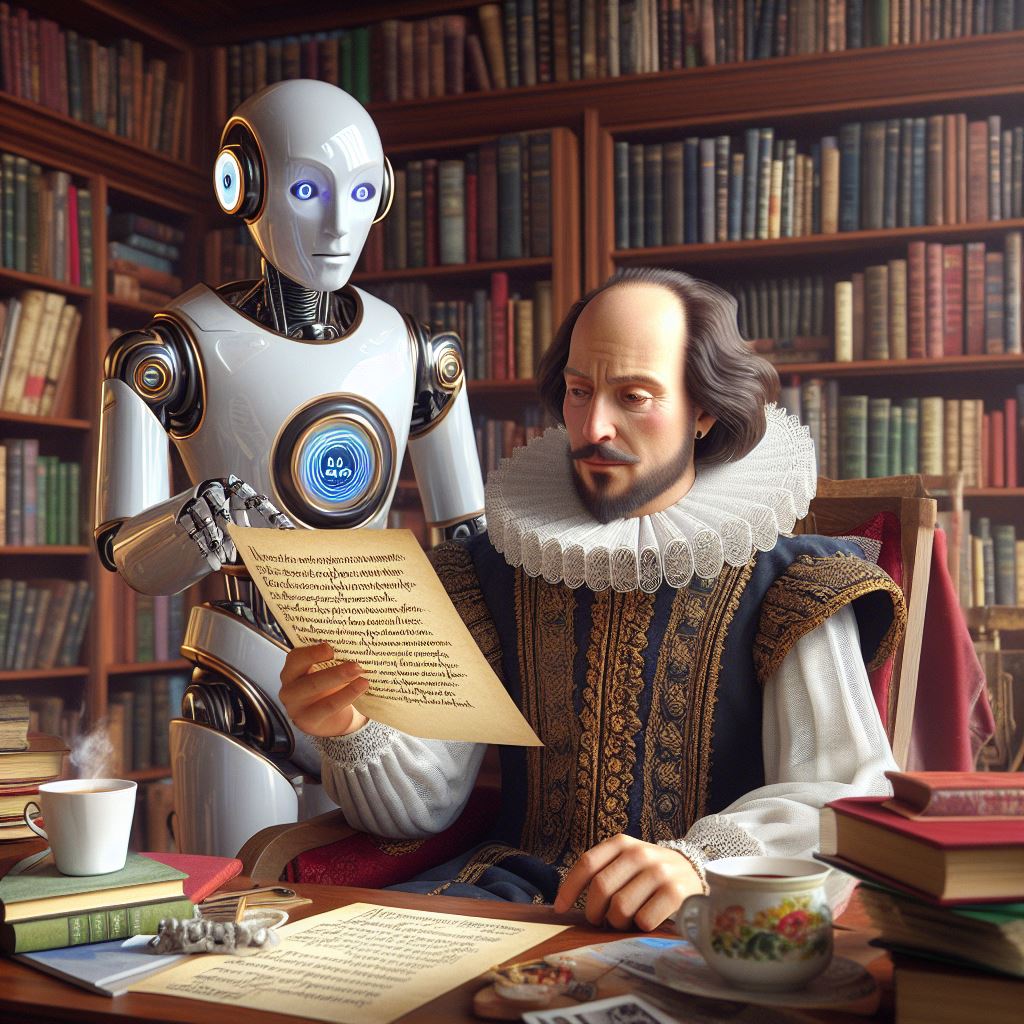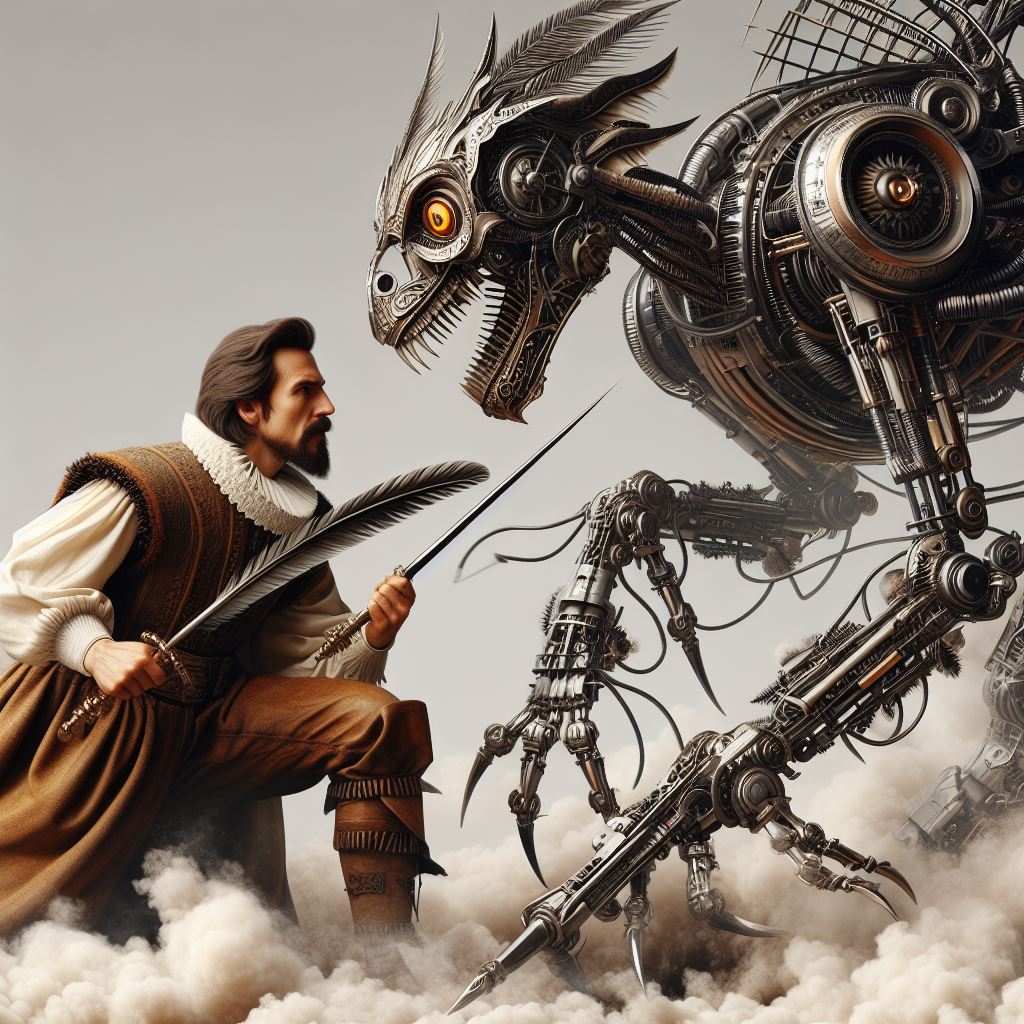Shakespeare, Cervantes, and Goethe Express Concerns Over AI Threat to Literary Careers
In an unexpected twist that has left literary circles in turmoil, three of history’s greatest authors—William Shakespeare, Miguel de Cervantes, and Johann Wolfgang von Goethe—have joined forces to voice their apprehensions about the encroaching threat of artificial intelligence on their esteemed professions.
Gathered in a spectral roundtable discussion at the ethereal University of Elysium, the trio of literary luminaries lamented the potential consequences of AI advancements on their cherished craft. “To think that our life’s work could be rendered obsolete by machines!” exclaimed Shakespeare, his ruffled collar trembling with indignation.

Cervantes, the esteemed creator of Don Quixote, echoed Shakespeare’s sentiments. “It is a travesty of epic proportions,” he declared, brandishing an imaginary lance. “What need have we for machines to tell tales when our own imaginations can conjure worlds beyond compare?”
Goethe, the revered poet of Faust, nodded solemnly. “Indeed, the prospect of AI usurping our roles as storytellers is a Faustian bargain we dare not entertain,” he intoned, his voice echoing with tragic resonance.

The concerns voiced by these literary giants come in response to recent advancements in artificial intelligence, which have led to the development of sophisticated algorithms capable of generating prose and poetry with startling accuracy. “It’s bad enough that humans have to compete with each other,” mused Shakespeare, “but now we must contend with machines as well!”
The specter of unemployment looms large over the literary landscape, with AI-powered writing assistants threatening to replace human authors in publishing houses and creative endeavors. “What will become of us if we are no longer needed to pen our immortal words?” wondered Cervantes, his quill trembling with uncertainty.

But despite their fears, the trio remains defiant, vowing to continue their literary pursuits with unwavering determination. “Let the machines churn out their soulless prose,” declared Goethe, his eyes flashing with fiery resolve. “We shall persevere, for the power of human creativity can never be replicated by mere algorithms.”
As the sun sets on the hallowed halls of the University of Elysium, Shakespeare, Cervantes, and Goethe depart with a renewed sense of purpose, ready to confront the challenges of an uncertain future with the timeless strength of their words. For in the end, it is the human spirit that shall prevail, even in the face of the most formidable adversaries, be they mortal or machine.



